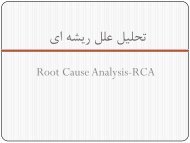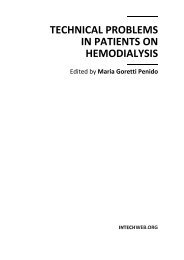new insights into the prevention and treatment of bulimia nervosa
new insights into the prevention and treatment of bulimia nervosa
new insights into the prevention and treatment of bulimia nervosa
You also want an ePaper? Increase the reach of your titles
YUMPU automatically turns print PDFs into web optimized ePapers that Google loves.
80<br />
New Insights <strong>into</strong> <strong>the</strong> Prevention <strong>and</strong> Treatment <strong>of</strong> Bulimia Nervosa<br />
curbing attempts to lose weight. At assessment, 29 (85%) women reported trying to lose<br />
weight in <strong>the</strong> previous six months whilst in <strong>the</strong> three month period between assessment <strong>and</strong><br />
follow up 21 (91%) reported <strong>the</strong>y had been trying to lose weight.<br />
4. Conclusions<br />
In this chapter we describe two attempts to identify <strong>and</strong> assist women with EDs in <strong>the</strong><br />
community, one a sample <strong>of</strong> younger women from tertiary education institutions <strong>and</strong> one a<br />
sample <strong>of</strong> older women attending <strong>the</strong>ir family doctors. In <strong>the</strong> first trial we did not replicate<br />
<strong>the</strong> positive findings <strong>of</strong> an earlier study which found a brief BN-MHL intervention<br />
improved mental health related quality <strong>of</strong> life when compared to a control condition <strong>of</strong><br />
information about ED services only. The MHL intervention had little impact on changing<br />
attitudes <strong>and</strong> beliefs about EDs, <strong>the</strong>ir identification or <strong>the</strong>ir <strong>treatment</strong>. However, <strong>the</strong> present<br />
studies were possibly underpowered to show differences. The second study was with an<br />
enhanced intervention that included provision <strong>of</strong> an evidence-based self-help book. There<br />
may have been a small impact on identification <strong>of</strong> <strong>the</strong> ED but overwhelmingly participants<br />
still had a comparatively low regard for specialist <strong>treatment</strong>s <strong>and</strong> rated getting more<br />
information as <strong>the</strong> most helpful approach for a fictitious person with a bulimic ED.<br />
Given that identifying <strong>the</strong> main problem for <strong>the</strong> woman with a bulimic ED in <strong>the</strong> vignette as<br />
low self-esteem it was <strong>of</strong> interest that <strong>the</strong> self-esteem self-help book appeared better received<br />
<strong>and</strong> more found it personally helpful than <strong>the</strong> ED self-help book. Anecdotal comments were<br />
that <strong>the</strong> title <strong>of</strong> <strong>the</strong> ED book was disconcerting <strong>and</strong> some women were puzzled as to why<br />
<strong>the</strong>y had received it. Although not overt we suspected that it may have been perceived as<br />
stigmatising by some participants. Many community women perceive significant stigma<br />
<strong>and</strong> discrimination for those who have a known ED (Hepworth & Paxton, 2007) <strong>and</strong><br />
particularly for those with binge eating <strong>and</strong> (over) weight (Darby et al., manuscript in<br />
preparation). We think it is likely that self-help books for binge eating <strong>and</strong> BN such as that<br />
used in <strong>the</strong> present study are thus best provided in <strong>the</strong> context <strong>of</strong> a consultation where <strong>the</strong>ir<br />
role <strong>and</strong> relevance can be explained.<br />
An additional factor (<strong>the</strong> ‘elephant in <strong>the</strong> room’) is <strong>the</strong> ambivalence people have towards <strong>the</strong><br />
ED behaviours. We have found that despite distress from ED symptoms, people with EDs<br />
have a favourable regard for ED weight losing strategies (Mond et al., 2010) <strong>and</strong> are much<br />
more likely to seek help to lose weight than to modify disordered eating (Hay et al., 1998;<br />
Mond et al., 2007; Evans et al., 2011). This apparent paradox is perhaps underst<strong>and</strong>able in<br />
<strong>the</strong> context <strong>of</strong> widespread public <strong>and</strong> community concerns about obesity <strong>and</strong> negative<br />
community attitudes towards weight disorders with widespread cultural positive regard for<br />
being thin. If a woman’s main concern is to receive help for a perceived or actual overweight<br />
problem, <strong>the</strong>n she may be less likely to want to engage in <strong>treatment</strong>s that are not<br />
known to reduce weight. In addition, we have found many women <strong>and</strong> up to a third <strong>of</strong><br />
general practitioners <strong>and</strong> o<strong>the</strong>r key health pr<strong>of</strong>essionals consider weight gain to be likely<br />
with <strong>treatment</strong> for <strong>bulimia</strong> <strong>nervosa</strong> (Hay et al., 2007b).<br />
The question <strong>of</strong> how best to improve ED-MHL for people with disordered eating, <strong>and</strong> if an<br />
improvement subsequently leads to an increase in accessing evidence-based <strong>treatment</strong>s<br />
from appropriately trained pr<strong>of</strong>essionals <strong>the</strong>reby reducing community <strong>and</strong> individual<br />
burden from EDs is still unanswered. Large scale universal public health campaigns <strong>and</strong><br />
/or programs that target health care pr<strong>of</strong>essionals are alternatives to <strong>the</strong> targeted programs<br />
described here. One focussing on depression <strong>and</strong> its <strong>treatment</strong> has likely had an effect in


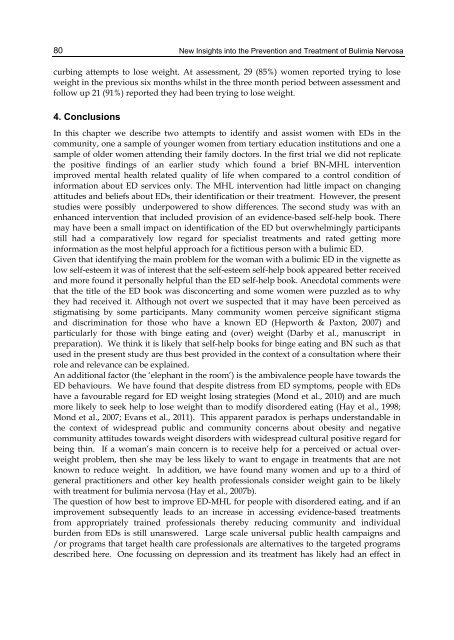

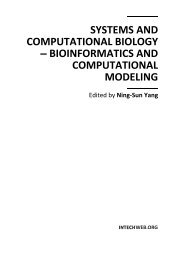



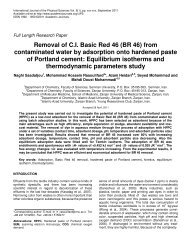

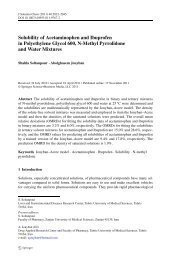



![focuspdca.ppt [Compatibility Mode]](https://img.yumpu.com/22859457/1/190x146/focuspdcappt-compatibility-mode.jpg?quality=85)
